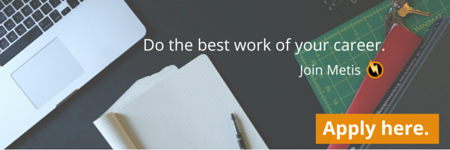Mistakes. We are trained that we should not make them frequently.
Emotions. We are told to never express them in the workplace.
Asking for help. We are instructed to figure out how to get it done (in most situations).
Why?
If those things are displayed in certain ways, we are said to be too vulnerable and it can be a disadvantage for our careers.
Recently, I was talking to a colleague who was challenged with when to express vulnerability at work. She was genuinely asking when it was appropriate to show any type of “weakness,” as vulnerability is sometimes portrayed.
As someone who is very open to showing weakness and failure, and believes vulnerability shows the desire to get better and learn more, I saw this as a foreign concept. Don’t get me wrong; I’m not one who feels like all mistakes are OK, or encourages crying to your boss or even asking for help about every little thing that you can just Google. BUT, I am open to figuring out how mistakes can be avoided, asking for help to figure out how to distribute and balance a workload, and, more importantly, expressing emotion through the passion for your work or the product or service your company is providing.
"I hope that in this year to come, you make mistakes.Because if you are making mistakes, then you are making new things, trying new things, learning, living, pushing yourself, changing yourself, changing your world. You're doing things you've never done before, and more importantly, you're Doing Something."
When you’re a hard worker and are seeing success in your career, vulnerability becomes easier – that success allows you to become more comfortable about your strengths and, more importantly, your weaknesses. You can be more real about your achievement goals and what you need to learn to put yourself ahead. Keeping everything in and not sharing, asking or learning more will hold you back.
So, I decided to take this to the Metis team through our Know Your Company software, and I want to share two tips from my colleagues that I agree with completely.
Co-founder, Cathy Atkins: Being real takes courage. Vulnerability is important, because we're all human. My dad always said, "you don't know what you don't know." Demonstrating and sharing vulnerability is also what keeps things simple. When you are unsure of what to do next or aren't completely happy with what you have created, say it. When you need help, ask for it. We all learn from each other. We must celebrate our vulnerabilities and flaws, just as much as we celebrate our strengths.
Seth Godin states, “If you want motion, the only way is through. We get to the work we seek by passing through imperfection.”
There is definitely benefit to being vulnerable and honest, and opening yourself up, so that you can push past your comfort zone. It's how we all grow.
Account director, Erin Rohr: I think vulnerability is a strength, not a weakness. If you are self-aware, vulnerability comes naturally. You can't be creative, learn or grow without being vulnerable. But, you need to own your vulnerability and have boundaries. It's important to know when and who to show it to, and how you do it.
Here’s a quote from my favorite past president, Teddy Roosevelt, which aligns nicely to the topic:
“It is not the critic who counts; not the man who points out how the strong man stumbles, or where the doer of deeds could have done them better. The credit belongs to the man who is actually in the arena, whose face is marred by dust and sweat and blood; who strives valiantly; who errs, who comes short again and again, because there is no effort without error and shortcoming but who does actually strive to do the deeds; who knows great enthusiasms, the great devotions; who spends himself in a worthy cause; who at the best knows in the end the triumph of high achievement, and who at the worst, if he fails, at least fails while daring greatly, so that his place shall never be with those cold and timid souls who neither know victory nor defeat.”
The next time you’re thinking about vulnerability in the workplace, think about expressing the type of vulnerability that gives you an advantage, instead of a disadvantage. If you’re the type of person who works hard and sees success from that hard work for your managers and customers, you can express more vulnerability to help you learn and grow. Remember that the next time you’re evaluating your career growth.

